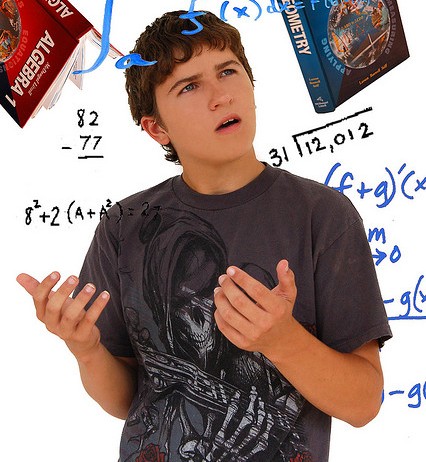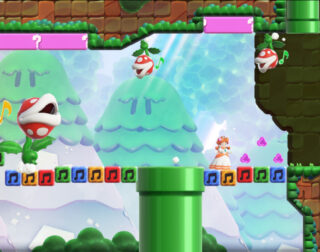Children who struggle with math often experience difficulties in recalling basic math facts. It may seem that they have learned a portion of their multiplication tables one day only to forget the whole thing by the next morning. Two experts on working memory, Susan Gathercole and Tracy Alloway describe how weakness with verbal working memory and visual-spatial working memory have been associated with difficulties in learning math. Working memory capacity, they theorize, may become overloaded for these children when developing basic numeracy skills, resulting in frequent errors of calculation. This has a direct impact upon these children’s ability to learn complex math as they need to expend a great deal of energy trying to recall simple facts.
Doing math in “your head,” or mental math, requires significant amounts of working memory. Children need to store the information, hold it in mind for the time necessary to use it, retrieve the math facts that they have presumably learned, and then process the information. Consider doing a math word problem in which one needs to keep in mind all of the facts that they have just heard, engage in calculations, and then recall additional math facts in order to arrive at a solution. Try doing this one without paper and pencil to see how memory plays a role:
There were 1768 cars in the convention center parking lot. Half of the cars left after an afternoon concert and 1020 more cars came in for the evening show. How many cars were there before the evening show let out?
Frequently, errors in mental calculation are the result of a lack of working memory that results in a loss of information. Working memory weaknesses may also contribute to difficulties when a child needs to apply a particular formula or a mathematical rule to a calculation. Fortunately, there are a number of strategies that can help children who struggle with working memory improve math skills. Some of these involve the use of digital technologies and apps. All of them require a desire to learn and acquire information.
Use complementary strategies for math word problems. Rather than relying upon working memory to hold all of the information in mind when solving math problems, learn to write down the basic facts and divide the word problem into sections. Becoming efficient with a calculator in order to complete calculations while listening may be helpful. This means that an individual needs to be able to utilize the calculator while maintaining focus on the data being given verbally.
[cjphs_content_placeholder id=”73534″ random=”no” ]
Improve visual-spatial skills. The data is quite compelling that visual-spatial working memory is strongly related to mathematical performance. Using games like Nitro or Mazement can challenge visual memory and may provide indirect support for weak mathematical skills. This can help improve children’s skills in geometry, trigonometry, and calculus.
Train working memory. Use a formal program such as Cogmed Working Memory Training or Jungle Memory. Research on Cogmed indicates that it can improve mathematical reasoning skills within 6 months. Other formal working memory programs have shown promise in the transfer of memory improvement to mathematical skills.
Overlearn mathematical concepts and formulas. Repeated practice with mathematical facts and formulas in order to make them automatically accessible reduces the strain on working memory resources. When a student is no longer faced with trying to determine which mathematical operations are needed to solve a problem, they can focus on the calculations themselves. One incredibly powerful tool for overlearning math facts and formulas is the Khan Academy, which allows the short-targeted lessons to be repeated as often as needed.
Use a multimodal approach to improving working memory and math skills. If it is allowed, encourage your child to take pictures of blackboard explanations, record lectures with the recorder on their laptop or handheld device, or employ note-taking technology such as LiveScribe. Drawing and creating a visual representation of math problems can be helpful for committing facts and formulas to mind, supplementing verbal working memory and visual-spatial memory.
At LearningWorks for Kids, we believe in supplementing a child’s play and learning time with digital technology. We write many reviews and Play Books for apps and games you may or may not already be familiar with. You can check them out here. Or, read about another 5 Ways to Boost Working Memory and Improve Math Skills.





